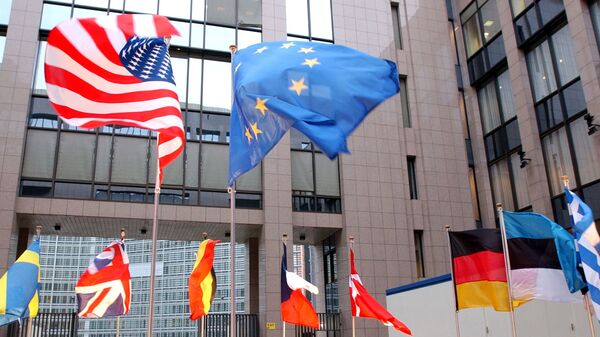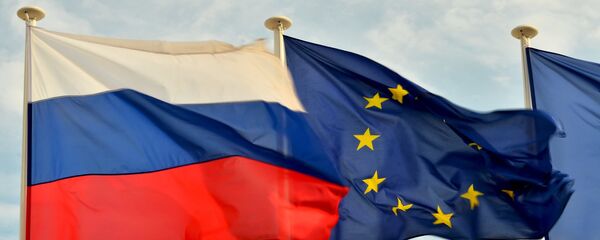"Up to now, European policy has been unable to demonstrate its independence from the US. The European Union has been traditionally following the US to a larger or smaller degree," the political scientist told RIA Novosti.
"The EU will have to adapt to this new reality, the rapprochement between the US and Russia. In case the block fails to do that, very serious discrepancies between its member states will emerge and it won't have any unified political stance from that on," Pierre-Emmanuel Thomann stated.
His comments came while in the mid-December the EU agreed on an extension of the economic sanctions against Russia for another six months.
The current term of sectoral economic sanctions imposed against Russia was set to expire on January 31, 2017. The agreements are expected to be extended for another six months, until July 31, 2017.
Russia’s ambassador to the European Union, Vladimir Chizhov, commented earlier that the EU is extending sanctions for the sake of preserving unity, which has become a goal in itself.
"First, some big EU countries say that sanctions should be either cancelled or eased but immediately after that minor but vociferous states demand that sanctions be extended and expanded. And then, someone we all know (President of the European Council Donald Tusk) steps forward as an arbitrator and says: "Our unity is in danger so let’s leave it as it is. Does anyone want to vote against it? A unilateral decision is made!" Chizhov then said describing the situation.
"This simple story has been repeating itself every six months. After that, the Council of the European Union makes a formal decision on extending sanctions while specific wording is made up by the Committee of Permanent Representatives. Sometimes it happens so that they don’t even hold a meeting," he then concluded.
Never miss a story again — sign up to our Telegram channel and we'll keep you up to speed!




